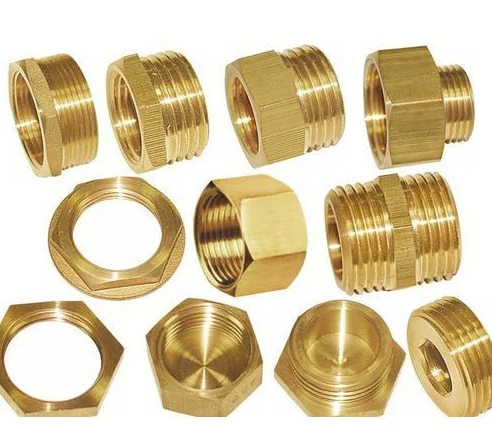
Modern vehicles represent complex assemblies of thousands of components working in harmony. Among the unsung heroes of automotive engineering are the humble fasteners that hold critical systems together.
Brass nuts have emerged as particularly valuable components in automotive applications across the UAE, where extreme climate conditions demand materials that can withstand intense heat, humidity variations, and even coastal salt exposure. Automobile manufacturers and repair specialists increasingly recognize how brass nuts contribute to vehicle longevity in ways that standard steel fasteners simply cannot match.
Brass nuts derive their exceptional properties from their copper-zinc alloy composition. Common automotive-grade nuts typically utilize C36000 (free-cutting brass) or C46400 (naval brass) alloys, each offering specific advantages for vehicle applications. The natural properties of brass make it inherently resistant to corrosion without requiring additional protective coatings, unlike steel alternatives that demand galvanization or other treatments to prevent rusting.
Corrosion stands as one of the primary enemies of automotive longevity, particularly in the UAE’s climate where humidity levels fluctuate dramatically between coastal and inland areas. Brass nuts excel in environments where moisture exposure cannot be avoided, such as engine compartments, undercarriage components, and cooling systems.
Vehicle cooling systems particularly benefit from brass nuts, as they resist the galvanic corrosion that often occurs when different metals come into contact in the presence of coolant fluid.
Automotive engines generate extreme temperature variations during normal operation. Brass nuts maintain dimensional stability across wide temperature ranges, making them ideal for mounting components subjected to thermal cycling. Unlike some polymer-based fasteners that can soften or standard steel fasteners that may experience thermal expansion issues, nuts retain their mechanical properties even when engine temperatures fluctuate dramatically.
Modern vehicles incorporate increasingly complex electrical systems with numerous ground points and connections. Brass nuts offer excellent electrical conductivity, making them ideal for securing electrical components, ground connections, and battery terminals. Many automotive electrical failures stem from poor connections that develop high resistance over time due to corrosion or oxidation.
Vehicles require regular maintenance, which means fasteners must withstand repeated removal and reinstallation without thread damage. Brass nuts feature excellent thread durability despite being softer than hardened steel alternatives. The material’s natural lubricity allows nuts to turn smoothly on steel bolts without galling or seizing, even after extended service in harsh conditions.
While brass nuts weigh more than aluminum alternatives, their superior durability often justifies the minimal weight penalty in most automotive applications. For performance vehicles where every gram matters, selective use of nuts in critical locations offers an excellent compromise between durability and weight management.
Racing teams in the UAE often utilize nuts for suspension components and drivetrain mounts where vibration and stress conditions demand materials that resist loosening while maintaining tensile strength.
Automotive engineers and mechanics throughout the UAE now have access to premium nuts in both standard metric (M3 to M16) and imperial thread patterns. Whether for factory production, aftermarket upgrades, or maintenance repairs, quality nuts with proper certification have become readily available through industrial suppliers across the Emirates.